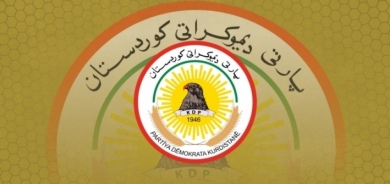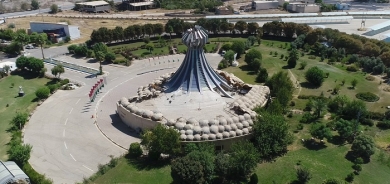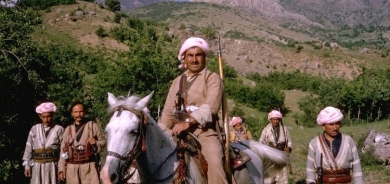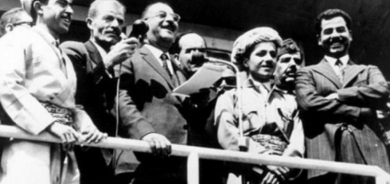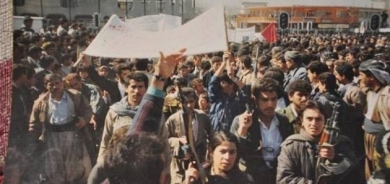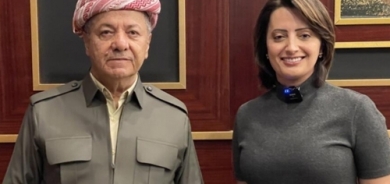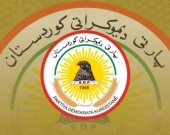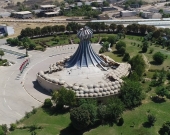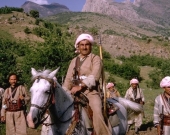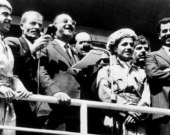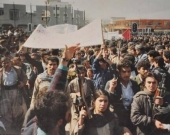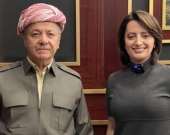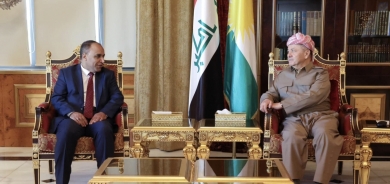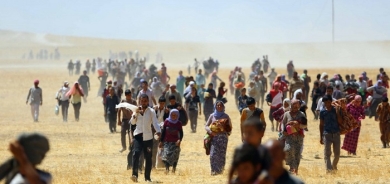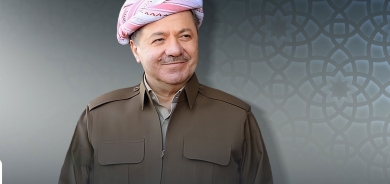The Iraqi Government Still Able to Implement Agreements
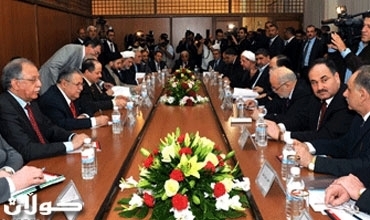
Within that context and to clarify the Kurdistan Region's leadership approach on the political process in Iraq, in early October a delegation from the Kurdistan Region went to Baghdad, which consisted of Fadhil Mirani, the Kurdistan Democratic Party's Politburo Secretary, Mulla Bakhtiyar, a senior leader in Patriotic Union of Kurdistan, Dr. Fuad Hussein, the Chief of Staff of President Massoud Barzani, and the envoys of Kurdistan Islamic Union, Kurdistan Islamic Group, the Communist Party, Tailors Party and Social Democratic Party of Kurdistan. While during their stay for four days in Baghdad, this delegation met with almost all key political parties in Iraq, including with the prime minister and his party. Although the Gorran party was not part of the delegation, as the KDP's Politburo Secretary said in a press conference after his return, they had given support for the efforts of the delegation and this was sign of the unanimousness position of the people of Kurdistan regarding the unresolved issues between Baghdad and Erbil.
This delegation was the outcome of a meeting of all the political parties of Kurdistan Region with President Barzani in September. Before starting their meetings, the delegation also met with President Jalal Talabani, which each of Dr. Roj Nuri Shawes, Iraqi Deputy Prime Minister, and Dr. Fuad Ma'sum, the Head of Kurdistan Coalition block, took part in.
Noteworthy, the visit of the delegation to Baghdad in a united form caught the attention of the other political parties and communities in Iraq and it was a message to the Iraqi government that without Kurds the government cannot succeed. They once again reasserted that Kurds are partners and not participants, and this national partnership requires to be reflected in all the Iraqi government's decisions. Moreover, as Dr. Fuad Hussein, the Chief of Staff of President Barzani, has said in a interview with Gulan, the Iraqi political process needs mutual understanding and they [Iraqi government] have to understand the fact that the demands of Kurds to implement the agreements is an Iraqi demand and is bound to all the communities of Iraq which also includes Kurds. Within that context, if Kurds have demands, it is for the implementation of the articles in the agreement and all of them are with regards to Iraqi and Kurds: adhering to the Iraqi Constitution. On the other hand, Dr. Hussein stated that the problem does not lie that only Kurds are disappointed by the current situation, rather, the other communities in Iraq are also, and if the signed agreements is not going to be implemented according to its content, then Iraqi cannot continue like this.
Understanding as a base for solving problems
After the delegation paid their visit to Baghdad, a sense of understanding is seen from the statements of the Iraqi political parties' officials. The problems before the visit seen as crises are now looked upon as differences of attitudes between KRG and Baghdad. Gulan asked Ali Shala, a MP from State of Law of Maliki, about the change of statements, who replied by saying: "There isn't any problem between Kurdistan Coalition and State of Law. The only difference was regarding the hydrocarbon law which was provoked in the media by both parties. We reached a conclusion that both of us must respect each other's perspectives, of the central government and of KRG, regarding the drafts of the law. The current calmness is the outcome of the meeting between both sides. Therefore, for me it not wrong if at a certain place there would be differences in opinions and then we discuss our differences. Rather, the mistake is when we reach a stage that there is boycott and isolation. Fortunately, this hasn't happened and won't happen in our alliance."
Mr. Shala was also questioned about not finalizing or solving the problems of the disputed areas and implementing Article 140. He said that sometimes people expect from the government to make a decision and solve all the problems in one day. "These issues need national consensus. Let me give you an example regarding the disputed areas. Neither Mr. Maliki, nor I, or you can make a decision about it without having a national consensus. We cannot even assign a minister without national consensus, so how can we reach a solution for the disputed areas through agreements or through the understanding of the government? As you might know, it is illogical that one party wins all and the other party loses all. In Iraq we need to learn the culture of tolerance and the culture of in-between-solution. Therefore in a united country through in-between-solutions nobody loses, rather, if one party wins then we are all winners. I think the meetings between both blocks were important therefore I wish if the opinions even if not fit but be close to each other about all the issues.
"But, changing reality on the ground needs the convincement of the other party, and with the support of God, we are continuing in our efforts to convince them with the principle that says 'We won Iraq' where nobody will be the loser. We must also remember that we have just emerged from a dictatorship that ruled the country for decades, and countries who have went through the transitional periods similar to ours have witnessed serious disagreements and disputes. One day we will leave this period also. It is very difficult to cure the wounds and problems of all these years of Anfal, war and mass-graves. The transformations occurred in the authority in Iraq have been radical, therefore we cannot pass all these things through a short transitional period."
Delay and postponement in implementing the agreements has brought about a situation for Iraq which has before all weakened the Iraqi government. This situation has even affected on not delivering the basic services to the people. This fact is known by all the communities in Iraq and even the Iraqi government cannot deny it. The only way that can make the circumstances of the citizens better and prove them the services, is that all the parties put all their efforts together for implementing the Erbil's Agreement which became born under the initiative of President Barzani and led to the formation of government, parliament and the presidency of Iraq. Whatever reason be its shortfall of its implementation, the Iraqi citizens have to pay the price. Our correspondent in the Iraqi Council of Representatives spoke with Dr. 'Itab Duri, from the al-Iraqiya list. She appraised the content of the agreement and said that it is a shame an agreement signed under the auspices of Massoud Barzani has not been implemented as it ought to be. She said: "Most of the political parties agree that the Erbil's Agreement should be implemented as it is. This agreement came into existence because of the initiative of Mr. Massoud Barzani, therefore it is a shame that this agreement sponsored by Mr. Massoud Barzani is not implemented, whilst the current government was formed upon the basis of that agreement. The Strategic Policies Council was part of it. We all need to vote for it because it is a constitutional issue. If the articles of Erbil's Agreement are not going to be implemented, then we have a popular basis, and what are we going to give them? I think the Iraqiya bloc will ask for early elections and no-confidence vote in the Council of Representatives. What we ask is to reach consensus so as to serve our people, we need a true national partnership government, and we want a national alliance for rebuilding and providing the services. Instead of disputes and political competitions, the nation needs us very much, the nation needs unanimity, one-discourse. Our people are dying and we are still jockeying for this and that position and seat."
These opinions of Dr. 'Itab Duri were also shared by Abdulmahdi Khafaji from Maliki's State of Law block. He honestly told Gulan that the government has been unable to implement its duties and has failed. "The government does not represent only a party, a coalition, or a specific approach. The government consists of all those communities that today exist in the Iraqi Council of Representatives that includes al-Iraqiya, Kurdistani Coalition and National Coalition. Therefore, the success of the government is the success for all participants of the political process, and the same for its failure. I admit that the government has failed, but its failure roots back to the mistrust between the political parties and blocks. We are now all responsible for it."
Regarding the reasons for not forming the Strategic Policies Council that according to Erbil's Agreement its leader should be from al-Iraqiya, he said: "The problem of SPC is the same problem and within the same disputes. The only difference in this issue is whether to be voted for in the Council of Representatives or not. We believe that this Council has been decided based upon political consensus among the political parties; therefore it has to be accepted according to that political consensus. But if this institution gains legitimacy and becomes another institution plus the other three main state constitutional authorities, then, personally speaking, I won't vote for this law and don't think that the majority of MPs will vote, since it is an unconstitutional institution and it not allowable to legitimize another institution and making it the competitor of the three other authorities. When we have a legislative problem, we have the Council of Representatives, when we have an executive problem we have the Council of Ministers, and when we have a judicial problem, then we have the Judicial Council. I think the SPC is an extra institution and its aim is just to satisfy a person and not to complete the political process.
A year-old incomplete government
Another unresolved issue still in Iraq is that for almost a year the Iraqi government is formed, but its structure is still incomplete. The ministries of defense, interior and national security is still run by acting personals. Jamal Batikh, a MP on the al-Iraqiya bloc, said: "The conditions of the security ministries have created lots of complications in the political process. The political process is not 100% complete, rather, it contains lots of complexities and this is due to failure of finalizing these ministries. However, this too has its own reasons. For instance, today we are said to have a national partnership government. This exists just by name, in reality, it’s a divisional government. Also because a true political majority didn’t born from the elections for creating a peaceful and stable environment, i.e., like in Turkey. The results of the 2010 elections were very close to each other. Wherever the results are close to each other, it would create political complexities in the political process. This situation has affected the government's performance. We can see the government almost does not exist in providing services. Citizens are having painful difficulties with food ration ticket, electricity, unemployment, education and health services. If there had been honest political wills and a determination for solving the problems based on national interest, then we would have witnessed improvements in electricity, education and health sectors.
Translated by: Ari Mamshae

